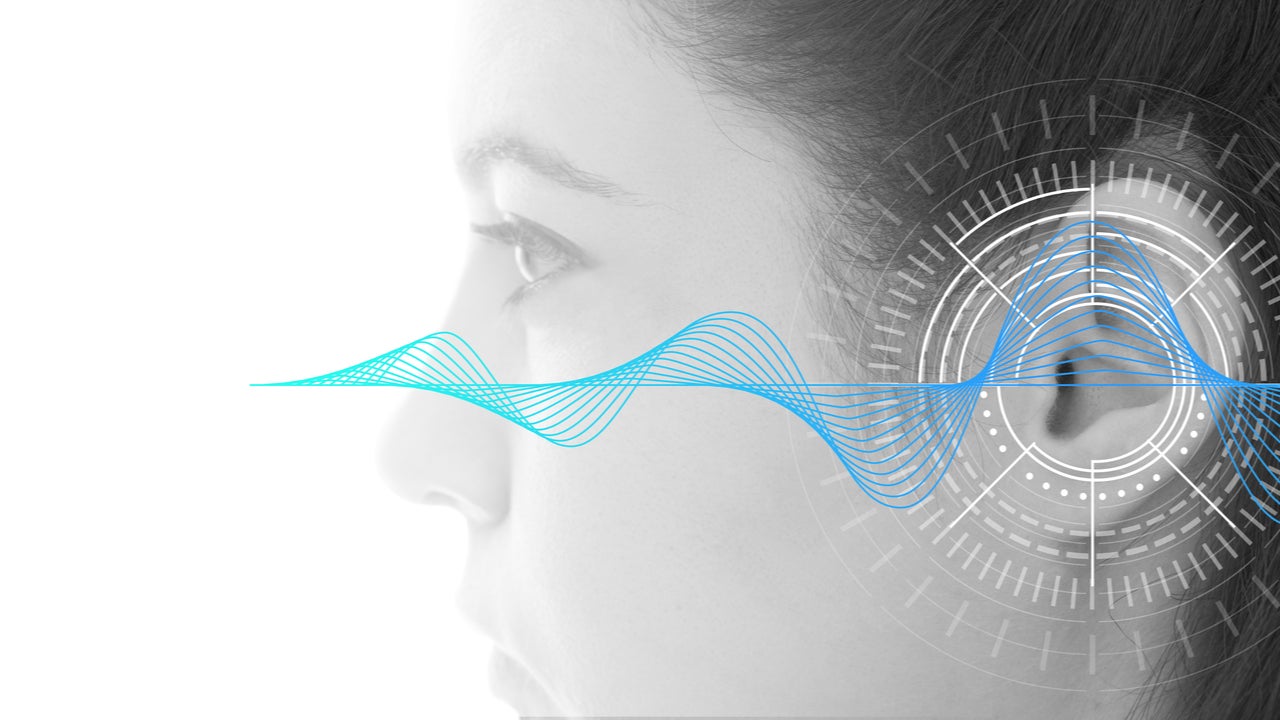
Hearables have proved extremely popular with consumers, and they continue to evolve. The next generation will be designed for greater comfort and offer longer battery life. They will also feature services like immersive spatial audio, health monitoring, and artificial intelligence (AI) based communication.
Technology Trends
Listed below are the key technology trends impacting the hearables theme, as identified by GlobalData.
Custom silicon
Silicon chips in hearables process voice commands, manage sensors and battery power, and establish stable connections with other devices.
Apple, Samsung Electronics, and Huawei are leaders in this space with their H1, MUB01, and Kirin-series chipsets, respectively. The H1 chipset is a system in a package (SiP), in which multiple integrated circuits are enclosed in one chip carrier package, allowing more space for sensors in Apple devices.
Other vendors use separate chips for connectivity, audio, and power management. Amazon uses Realtek’s Bluetooth system on a chip (SoC) in its Echo Buds, while Sony uses a combination of its audio SoCs and MediaTek’s Bluetooth SoCs in its hearables.
The majority of vendors, including Google, Bose, Mobvoi, and Jabra, use Qualcomm‘s QCC-series SoCs, which offer Bluetooth connectivity and audio codec solutions like aptX.
How well do you really know your competitors?
Access the most comprehensive Company Profiles on the market, powered by GlobalData. Save hours of research. Gain competitive edge.

Thank you!
Your download email will arrive shortly
Not ready to buy yet? Download a free sample
We are confident about the unique quality of our Company Profiles. However, we want you to make the most beneficial decision for your business, so we offer a free sample that you can download by submitting the below form
By GlobalDataOver the next two years, the demand for SiPs will grow as vendors reduce their devices’ size, add more sensors to them, and manage connectivity, audio, and power from a single chipset.
AI
AI is becoming increasingly important in the hearables market, thanks to the integration of conversational platforms.
Apple, Google, and Amazon are the most prominent providers of conversational platforms in hearables, while Samsung Electronics, Xiaomi, Mobvoi, and Microsoft are also scrambling for market share.
Google and start-ups like Timekettle are also developing real-time language translation tools to help users converse in foreign languages.
Nuheara offers EarID, a proprietary AI-based hearing personalisation system in its IQbuds Boost devices. It allows users to measure and analyse each ear’s hearing ability and set up the earbuds for the optimal hearing experience.
With AI becoming increasingly important in hearables, Google and Amazon are well-positioned to benefit from and influence the market.
Battery life
Battery life is critical for hearables, although it remains less than adequate.
Use time on a single charge is typically between five to eight hours, although this can vary from one device to another. Vendors are striving to pack more battery cells into their hearables, but the limited onboard space is a constraint.
The slow progress in battery technology will remain an ongoing concern for hearables vendors.
Active noise cancellation (ANC)
ANC is increasingly becoming a standard inclusion in hearables, as it improves the audio quality for users.
ANC systems emit a sound wave with the same amplitude as the unwanted incoming sound and cancel it using so-called destructive interference.
Apple featured ANC on its AirPods Pro devices, launched in 2019, and audio companies like Bose, Sony, Poly, and Sennheiser quickly followed suit.
While most hearables vendors have adopted ANC, Google offers no ANC on its Pixel Buds, presumably to keep the price down.
Cybersecurity
Hearables frequently exchange data with paired devices via Bluetooth, which makes them susceptible to hacking.
In August 2019, researchers at universities in Singapore and Oxford and the Center for IT-Security, Privacy and Accountability (CISPA) discovered a vulnerability in the Bluetooth protocol.
Key Negotiation of Bluetooth (KNOB) allows hackers to eavesdrop on any device that uses Bluetooth 1.0 to 5.1. Such attacks can jeopardise user privacy and potentially lead to the exploitation of personal data such as passwords, text messages, and location.
In response, all hearable vendors have enforced the updated encryption standards recommended by the Bluetooth Special Interest Group.
This is an edited extract from the Hearables – Thematic Research report produced by GlobalData Thematic Research.






Related Company Profiles
Amazon.com Inc
Apple Inc
Google LLC
Samsung Electronics Co Ltd
Microsoft Corp